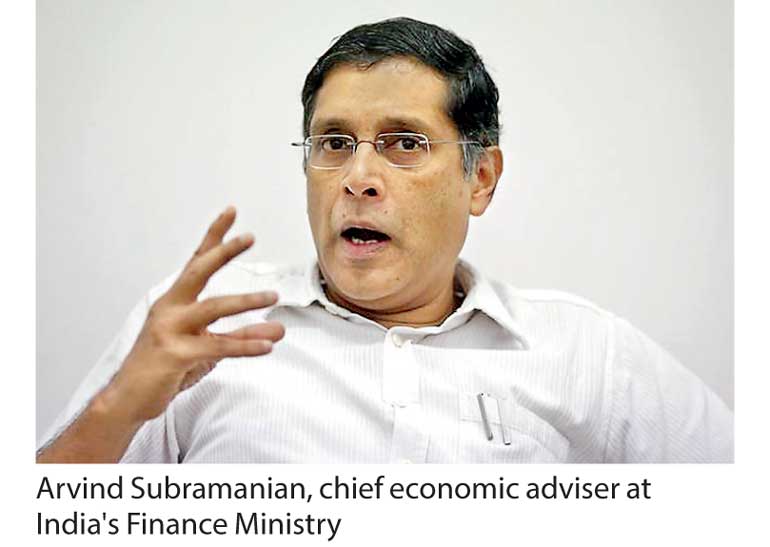Wednesday Feb 25, 2026
Wednesday Feb 25, 2026
Friday, 9 June 2017 00:00 - - {{hitsCtrl.values.hits}}
 Reuters: India called on Thursday for a coalition of middle-income countries to drum up support for globalisation as a political backlash in the United States and parts of Europe against free trade and investment imperils its growth aspirations.
Reuters: India called on Thursday for a coalition of middle-income countries to drum up support for globalisation as a political backlash in the United States and parts of Europe against free trade and investment imperils its growth aspirations.
Arvind Subramanian, the finance ministry’s chief economic adviser, suggested India could lead a coalition of countries with open economies to promote free trade.
“We, in India, now have a much bigger growing stake in ensuring that the world markets remain open, that we continue to see globalisation,” Subramanian told a conference on the world’s 20 biggest economies (G20).
“A coalition of middle-income countries led by India or at least where India is taking charge, would be something we should seriously explore.”
The proposal comes as frustration with persistently low growth, stagnant wages and diminishing job security has sparked opposition in Europe and the United States to free movement of capital, goods and services, which critics blame for eroding incomes and worsening inequality.
Those worries prompted US President Donald Trump last week to pull the United States out of the landmark 2015 global agreement to fight climate change.
Across the Atlantic, British Prime Minister Theresa May has rejected “untrammelled free markets” and plans to cut annual net migration to the tens of thousands.
Free trade and investment in the 1990s and 2000s triggered an unprecedented boom in the global economy, leading to rapid increases in per capita income and reductions in poverty.
India, for example, saw average annual gross domestic product growth of 8.2% between 2003-2011, buoyed by 20-25% annual growth in exports.
A slump in export markets since then has brought average growth down below 7%. Asia’s third-largest economy needs to expand by at least 8% a year for the next decade to create jobs for its burgeoning workforce.
But to realise its growth ambitions, India estimates goods and services exports would have to rise 15% a year.
Subramanian said India would have to demonstrate a commitment to open markets and do more to liberalise trade and investment without worrying about the costs.
“We are now an important player ... we cannot say the burden of keeping it open rests exclusively with others,” he said.
“Wielding power and influence entails responsibility.”